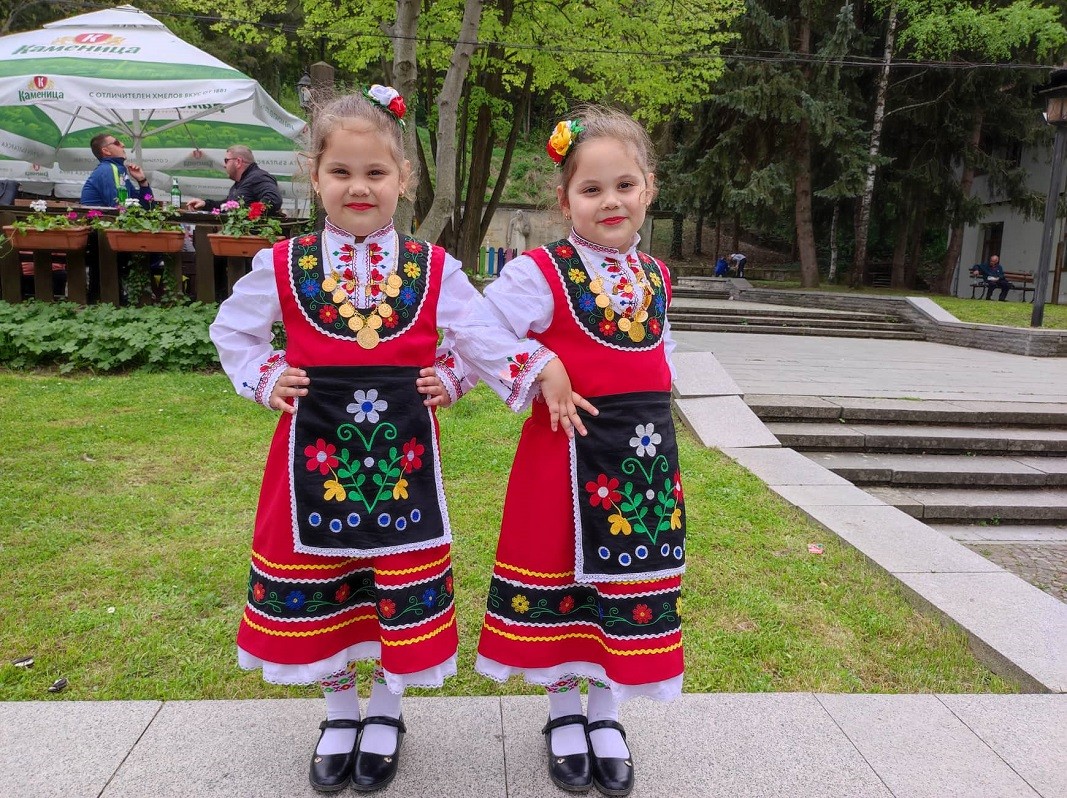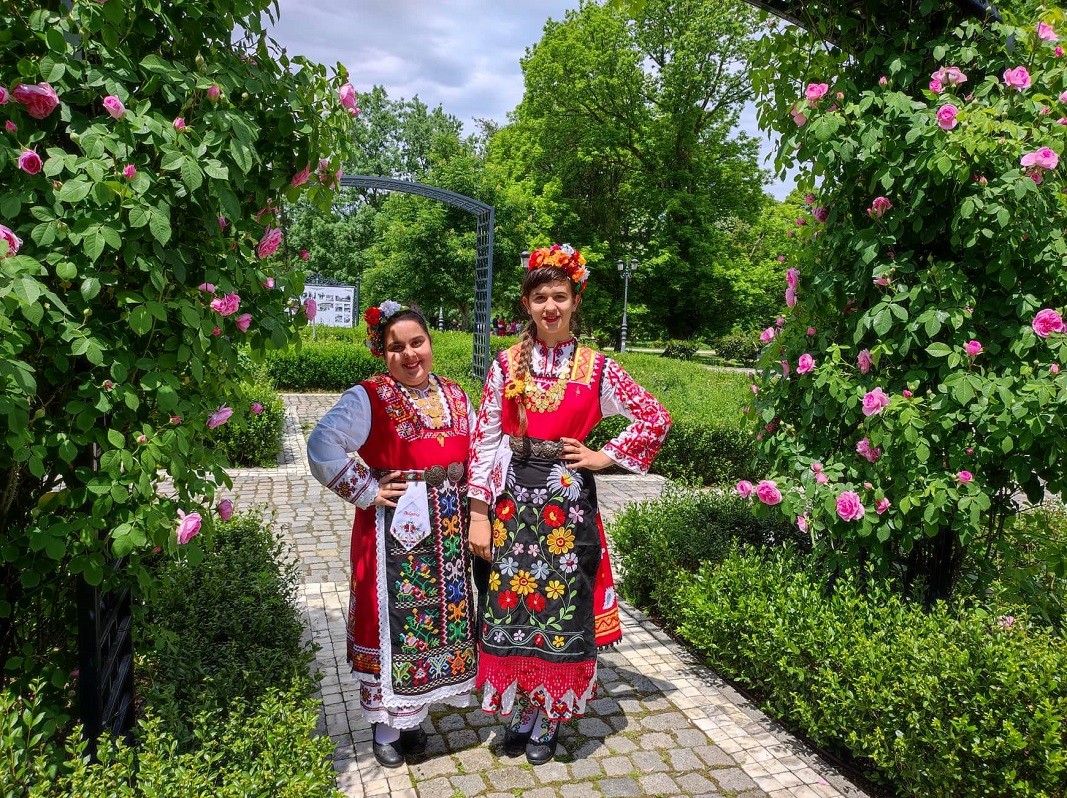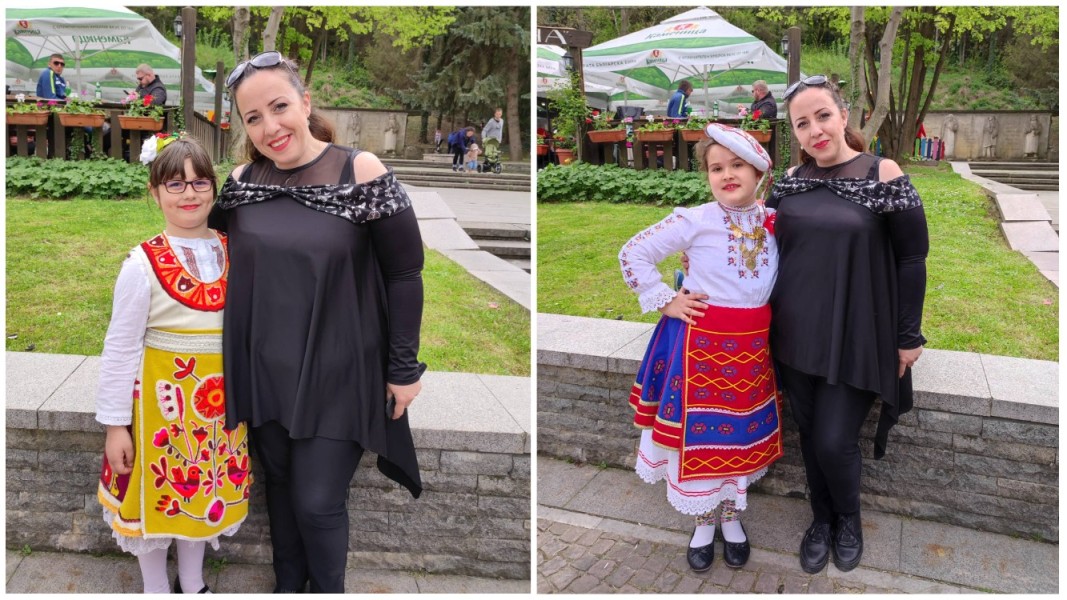“Our children love folk songs, they love the stage, they love to win prizes and the applause, it gives them wings and motivates them,” Plamena Gospodinova says about the children from the Ilia Avramov arts club in Nova Zagora. We talk to her at one of the most colourful festivals in the country – Kiten and Friends – where students of hers won several awards, the latest in an array of regional and national distinctions. The successes of the children fill their dedicated tutor with pride, but also the members of a close-knit community of parents, grandparents, brothers and sisters who wholeheartedly support their efforts. Plamena herself has been singing since she was a little girl, having learnt her first songs from her grandparents, and then – from her teachers. Renowned folk singer Dinka Ruseva prepared her for the entrance exam at the National School of Folklore Arts in the town of Kotel.
“I studied folk singing at this wonderful school with Mrs. Sashka Chenkova, to whom I am very grateful. She was the person who gave me the inspiration to start teaching children folk singing. Not to mention the atmosphere at school, all of the people you get to meet while you are studying, it grabs you,” Plamena remembers. “While I was at university in Shumen, I was offered to teach music at kindergartens as my practical training. And I loved it, I loved the way the children would look at me with shining eyes, they couldn’t wait for me to show them something new. It was there that I realized this was my calling.”
Since 2018 Plamena has been teaching children aged 5 to 13 at the Ilia Avramov arts club:

“Nova Zagora is in the Thracian region, that is why we always start with the songs from this area, so they can get to know them, their spirit, their specific style,” Plamena goes on to say. “Then I go on to explain there are other regions in Bulgaria as well, where the songs are just as beautiful, but are in a different folklore style and we learn all about the specifics of the music from the Shoppe region, from the regions of Strandzha, of Dobrudzha etc.”
Plamena says further that about two years ago they set up a vocal formation – Agleia – in which the children learn polyphonic singing. She believes that stage appearances and the love of the audience is what inspires the young singers to do everything they can to surmount difficulties and stage fright, to develop valuable human qualities. That is why she is always looking for appearances at concerts and festivals.
“Work gives me a lot of energy,” she says. “Seeing the light in the eyes of the children as they come on stage, their excitement, their joy when they win awards makes me very happy. They are so very curious, that is why they are always on the lookout for new songs suited to their age. At the beginning most of them are timid, but then gradually they gain confidence. My own daughter, Nicole was two and a half when she took part in her first competition, and she did great. My first pupil was Darina Hristova, together with my daughter Nicole.

We are now working on voice with the two of them, they have been singing duets. What they are fond of most is the diaphonic singing from the Shoppe region. They have won quite a few prizes as a duet.
I am grateful to all parents for their support. The children are very small, and when we travel from town to town, they are always with us. Let me tell you about 6-year old Denitsa – she was nervous of going on stage at first, but then, after the first award, she became much more confident and sure of herself. Each child has a different character, and they are different ages. But they all have something in common – their fondness of folk music.”

Photos: private library
On 22 November, the Association of Bulgarian Folk Ensembles Abroad (ABFEA) will present its project, 'Online Catalogue of Bulgarian Horo and Other Dances', in three European cities: Lyon, Munich and Copenhagen. 'Our goal is to preserve Bulgarian..
‘The Bulgarian horo is a kind of magic — an enchanted circle that pulses with the unique energy of our spirit, our traditions and our identity,’ says journalist Milena Milotinova, who recently presented her new documentary The Magic of the Bulgarian..
The Eastern Rhodopes come to life in the heart of Sofia – with authentic flavoуrs, music and craftsmanship . Residents of the Bulgaria capital have a chance to immerse themselves in the atmosphere of Momchilgrad Municipality and its cultural and natural..

+359 2 9336 661
